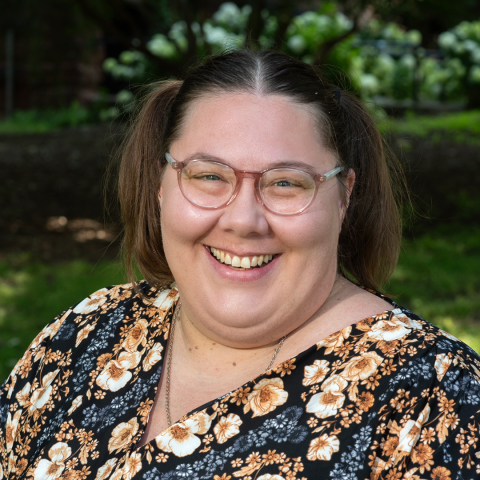McNair Scholar 2024 - Christine Friendshuh
Christine A. Friendshuh is a senior at the University of Minnesota-Twin Cities, majoring in Psychology and double minoring in Developmental Psychology and Statistics. Her research interests include psychopathology and its transmission and development over time. She is passionate about advocating for individuals with disabilities and plans to attain her Ph.D. in Developmental Psychology.
Quote from Christine Friendshuh

My dream is to become a principal investigator for individuals with disabilities to foster greater inclusion and better quality of life for individuals within the disabled community and their loved ones.
Research project
Why Does Neighborhood Matter? A Study of Neighborhood Opportunity Effects on Corticolimbic Circuitry
Abstract
Neighborhoods with lower opportunity levels are associated with negative outcomes. The stress acceleration hypothesis posits that early life stress leads to protracted brain maturation as a short-term adaptation to adverse environment. However, it is unclear whether this effect can be generalized onto a) children living in low opportunity neighborhoods, and b) corticolimbic circuitry during resting-state fMRI. Objective: We hypothesized lower COI (child opportunity index) would be associated with earlier maturation of the corticolimbic circuitry, as indexed by a more negative amygdala-CON (cingulo-opercular network), and hippocampus-CON resting-state functional connectivity. Method: We used data from the Adolescent Brain Cognitive Development study. Multilevel modeling was conducted using Mplus. Relative weight analysis was conducted using RStudio. Results: COI was significantly and positively related to examined corticolimbic circuitry. Household income and social and economic domain contributed most to corticolimbic circuitry. Conclusion: Our findings shed light on possible new areas of macro level neighborhood revitalization.
Faculty mentor
Dr. Ka I. Ip is an assistant professor at the University of Minnesota’s Institute of Child Development. He acquired his Bachelor of Arts in Psychology, Master of Science in Psychology, and Ph.D. in Clinical Science and Developmental Psychology at the University of Michigan. He currently leads the DANCE (Developmental, Affective, Neuroscience, Culture & Environment) lab focusing on culture, children and adolescents’ mental health, and the developing brain. Dr. Ip aims to use his knowledge to reduce racial-ethnic inequalities, advance health equity, and optimize timing of interventions. Dr. Ip’s first year as a McNair faculty mentor is 2024.